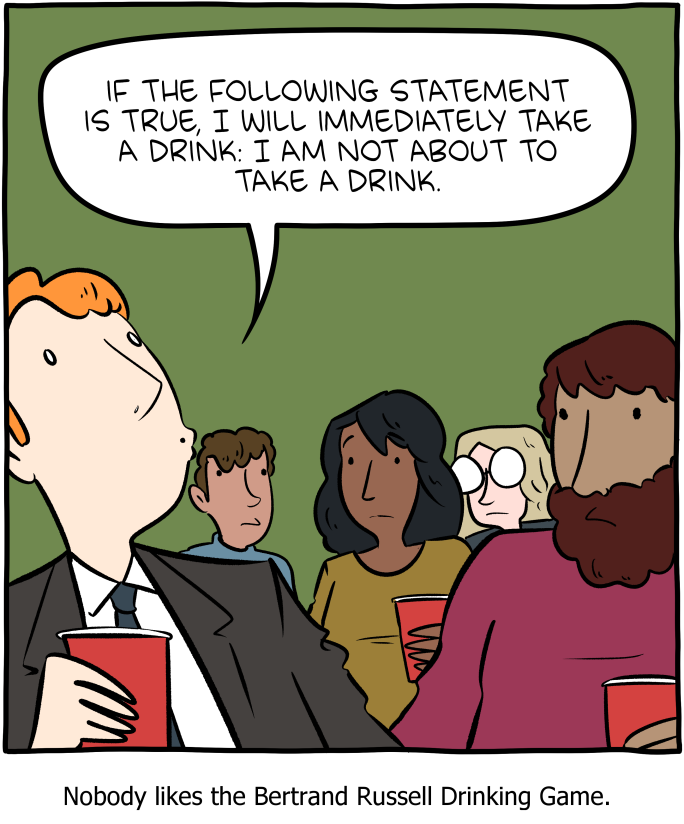Reminder About the Diaresis
Since I ran into someone doing it correctly, I thought I’d remind you about the diaresis, those two dots that look like an umlaut above a letter in English.
Only a few words retain the diaresis now, but naïve is one of them. It means you pronounce the two vowels separately, not together. “Naïve” is really a two-syllable word!
To get those dots over a letter i, hold down the Alt key while you type 139 on the numeric keypad.
Subscribe to this blog's RSS feed
Another Antecedent Problem
Here Dagwood offers his boss two antecedents to reply to. He spells them out in the second panel:
(Short versions: “promise,” or “get mad.”)
I see this pop up occasionally in conversations. And it’s not infrequently a source of conversational humor.
But when you write expositorily, try to avoid this ambiguity!
Bert or Kurt?
I always thought this kind of self-contradictory statement was a consequence of Kurt Gödel’s incompleteness theorem (qv), but here I see it attributed to Bertrand Russell.
This is philosophically (or mathematically) equivalent to the statement “This sentence is false.” Gödel definitely warned that things that refer to themselves can get you into trouble.
Another Redundancy
This error is close to me because of my proximity to chickens. If you have chickens, you know not to do this, right? Bottom right.
It’s like saying a baby infant.
Another Diatribe Against Pronouns
I’ve mentioned this topic before. Use the search box to find more.
Don’t use pronouns if you can help it because you might face antecedent confusion. Like this funny:



